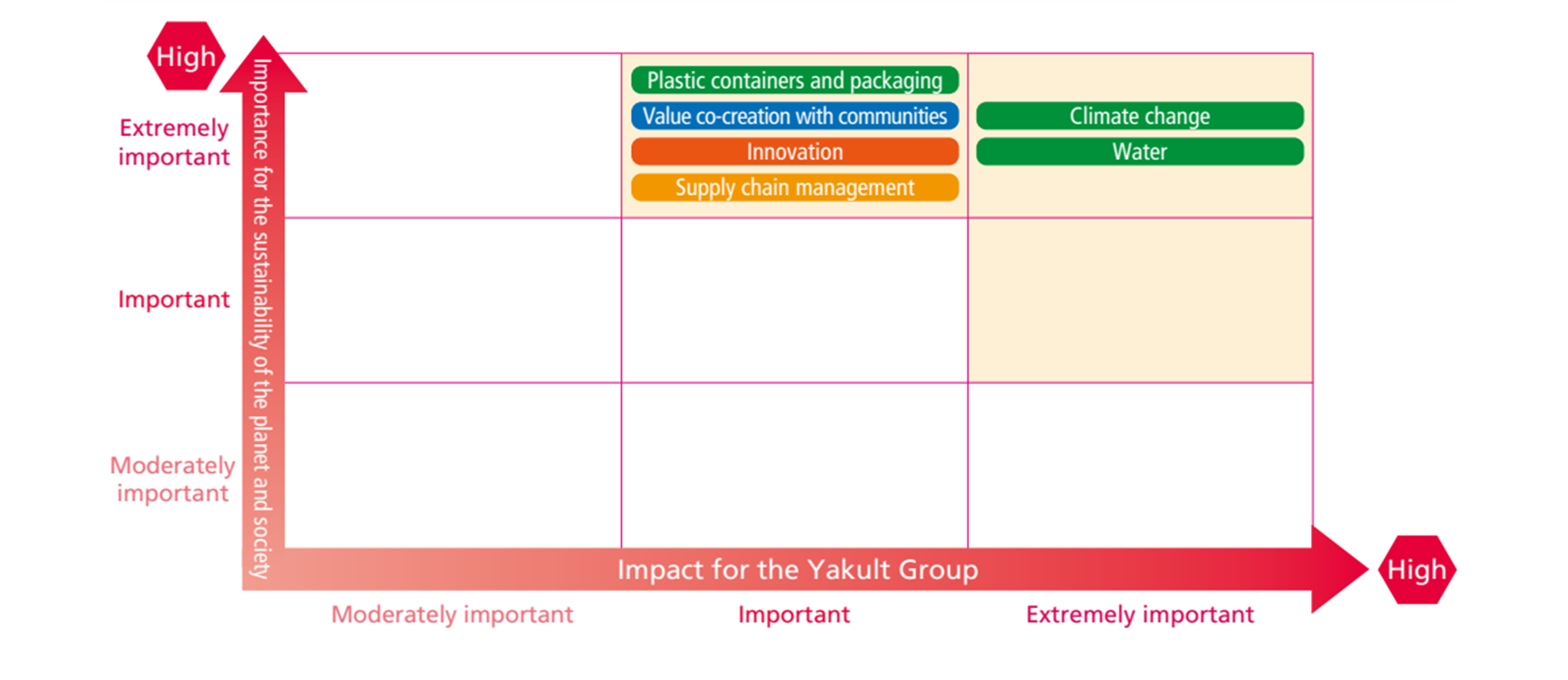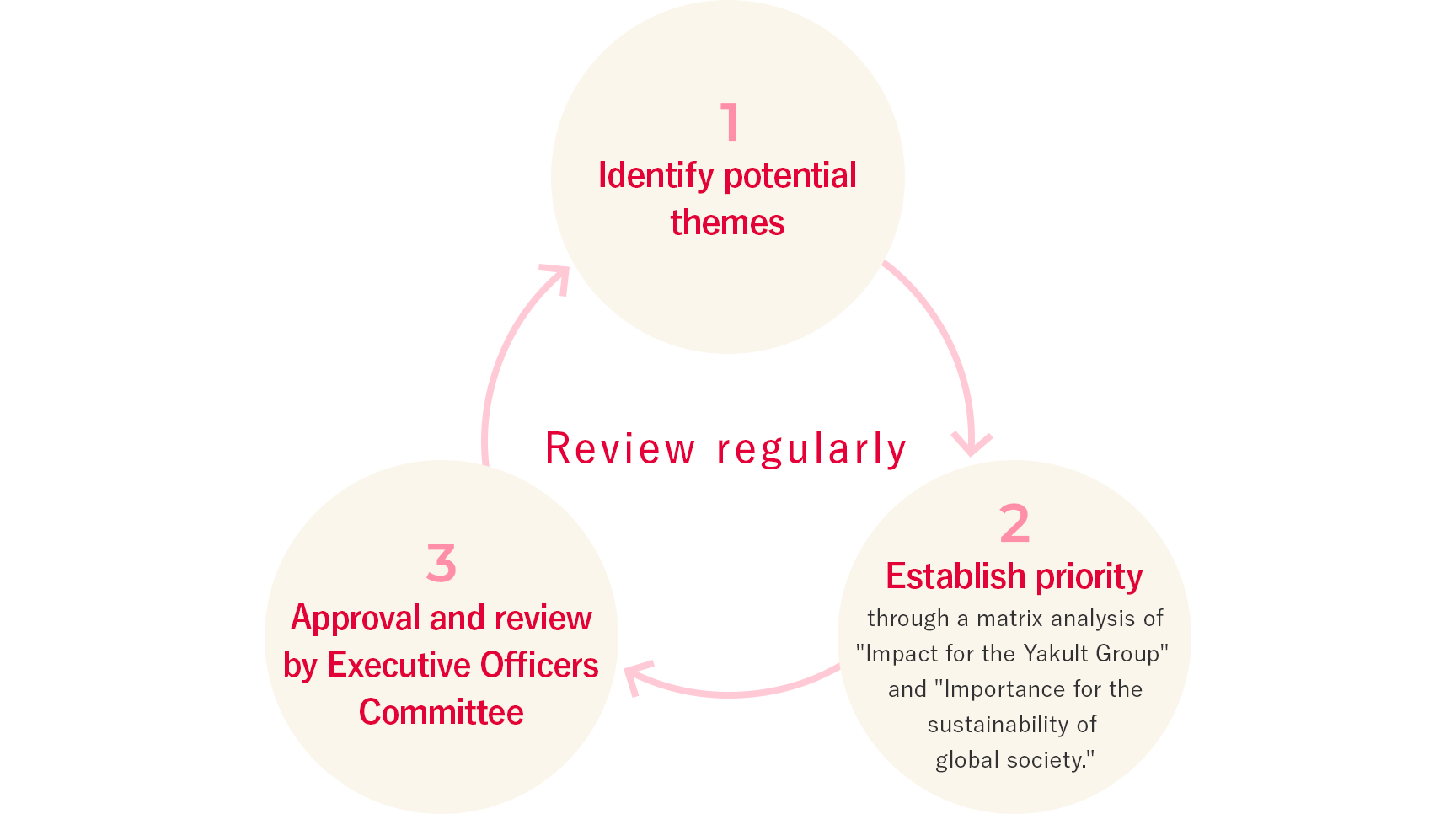Yakult Group Materiality
Materiality assessment
Based on our belief that “in order for people to be healthy, everything around them must also be healthy,” the Yakult Group has identified material themes to achieve sustainability and has been working to resolve social issues. At the same time, to guide the sustainable growth of our business and flexible adaptation to change, we established our long-term vision Yakult Group Global Vision 2030 in 2021.
Four years have passed since the formulation of this long-term vision. In response to evolving social issues, we undertook a review of our material themes over approximately nine months, starting in June 2024, in order to ensure the realization of the long-term vision toward 2030.
In this review process, with the cooperation of external experts, candidates for material themes were selected by organizing them based not only on ESRS topics,*1 SASB Standards,*2 and our own management strategy, but also on such external factors as social issues and industry trends. We are well aware of the significant impact our Group’s business activities have on society and the environment, and we view our contribution to a sustainable society as ultimately linked to our financial value. With this understanding, these themes were then mapped along two axes based on the concept of double materiality: “impact materiality,” referring to the Yakult Group’s impact on the environment and society, and “financial materiality,” referring to the impact of environmental and social changes on the Yakult Group. Each axis was categorized into three levels—“extremely important,” “important,” and “moderately important”—and a matrix analysis was conducted.
The analysis results were evaluated by 45 employees in and outside Japan, sustainability experts and institutional investors regarding the alignment of the themes with our business model and the validity of the impact and financial assessments for each theme. Incorporating this feedback, the Management Policy Council, the Executive Officers Committee, the Sustainability Advisory Committee and the Board of Directors engaged in deliberations, leading to the identification of 12 material themes of extreme importance to the Yakult Group.

For the 12 identified material themes—including those still under review—we are establishing key performance indicators and formulating strategies and plans to promote the achievement of Yakult Group Global Vision 2030 and the realization of our corporate philosophy, while also enhancing the sustainability of not only the Yakult Group but also the planet and society at large. In addition, we will regularly review our material themes in the light of evolving internal and external conditions and feedback from our stakeholders.
- * 1 ESRS topics: Specific disclosure topics under the European Union’s European Sustainability Reporting Standards (ESRS).
- * 2 SASB Standards: A framework for ESG (environmental, social and governance) disclosures published by the Sustainability Accounting Standards Board, which defines sustainability-related items across 77 industries.
Identifying material themes

The 12 material themes for achieving the long-term goals of Yakult Group Global Vision 2030 (YGGV2030)
Deliver good health to as many people as possible around the world
Offer customers new values which match their needs
Realize a society in which people and the planet co-exist
Human capital supporting business growth
- Home
- /
- Sustainability
- /
- Yakult Group Materiality

